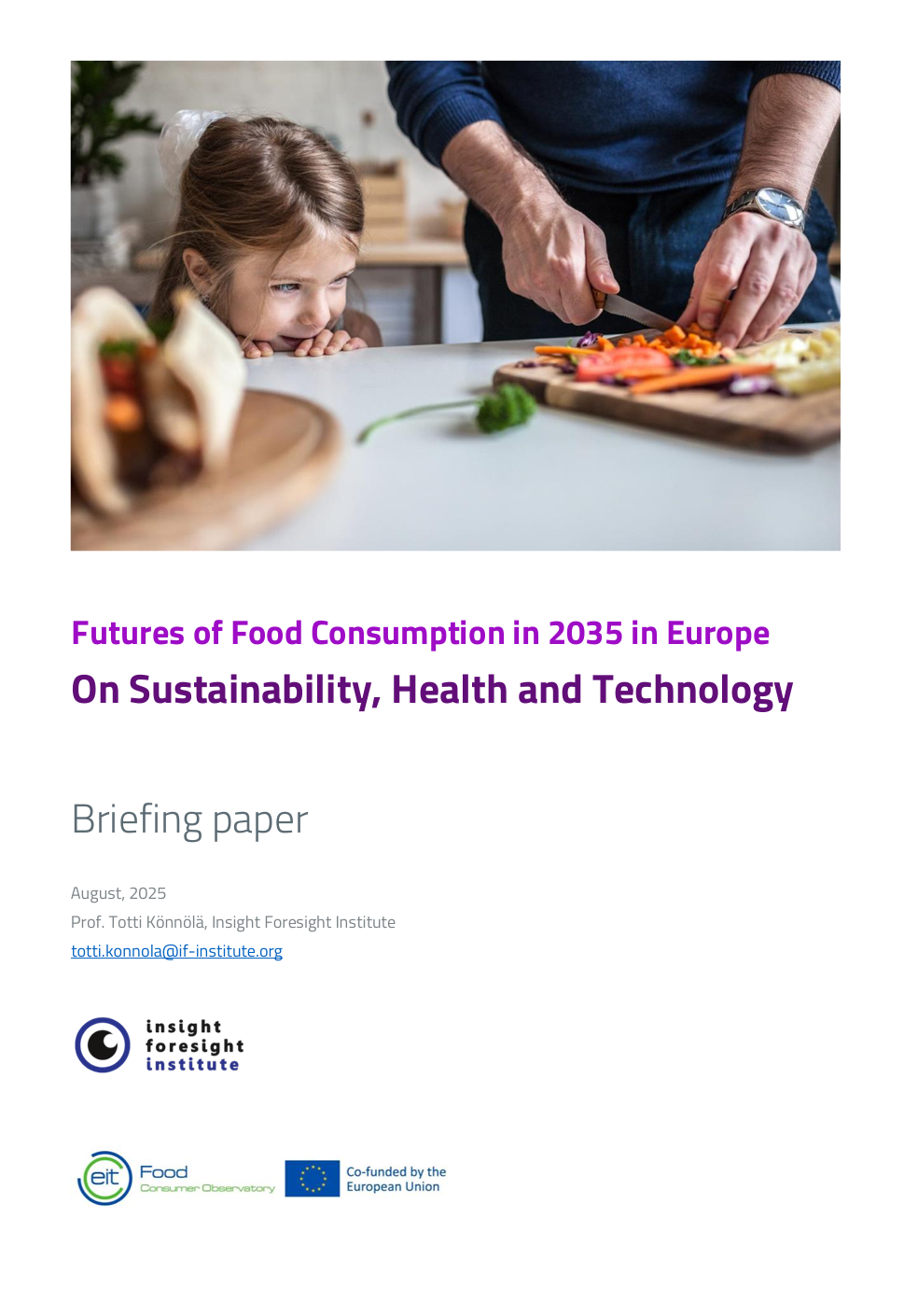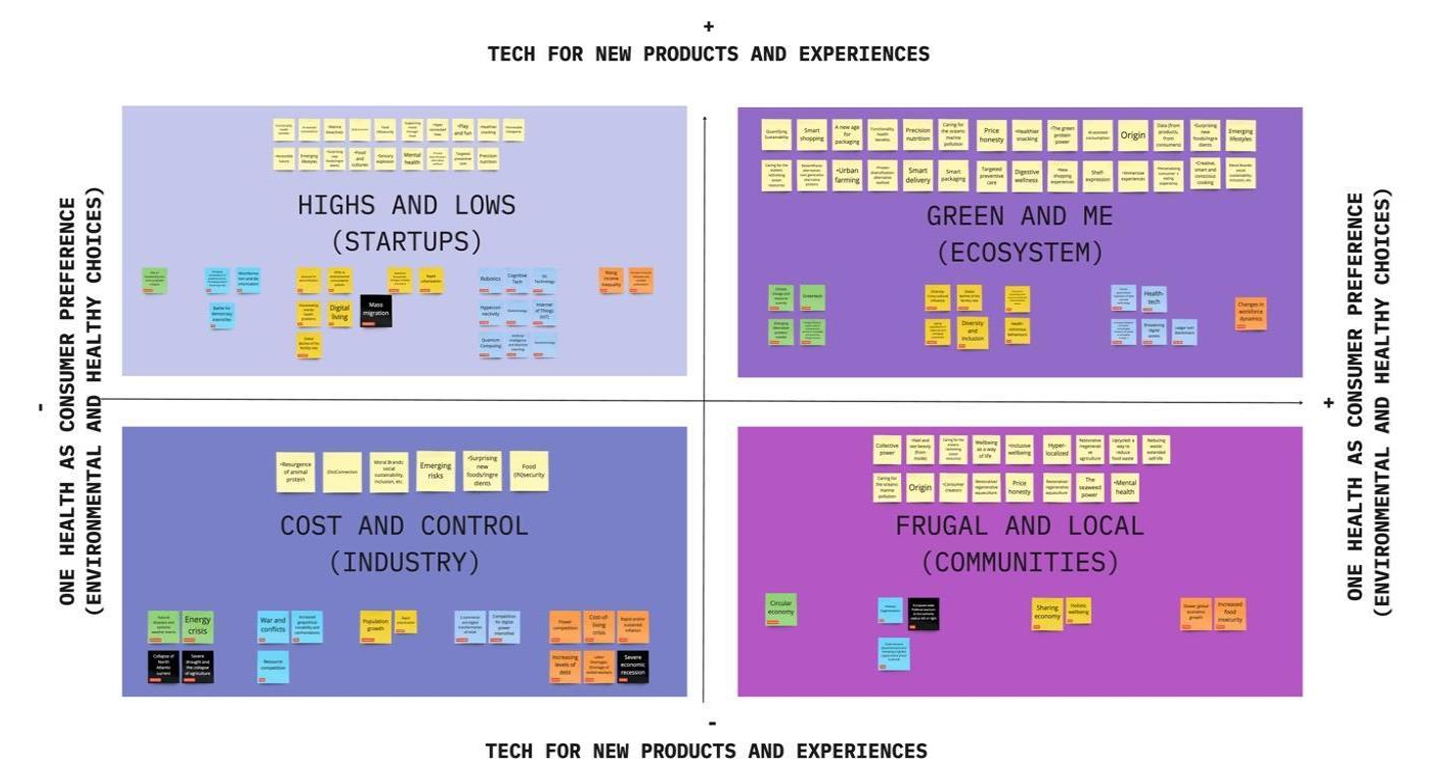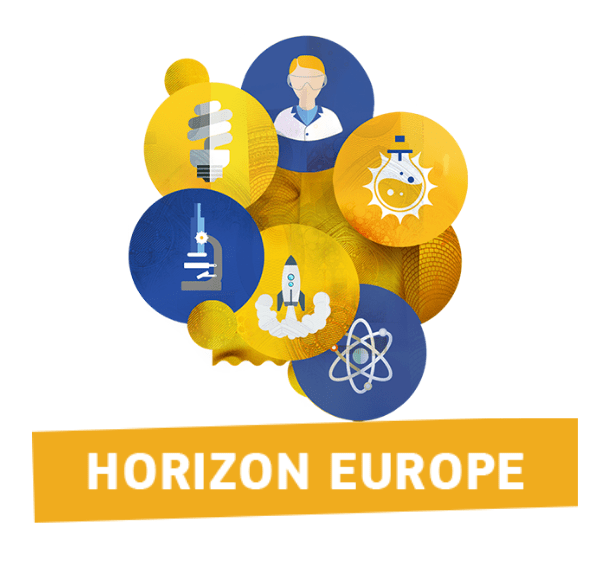The CEO of Insight Foresight Institute, Totti Könnölä, coordinated this project of the Foresight on Demand consortium. The project explored transformative scenarios for Europe’s rural and marine areas in 2050, examining their implications for current R&I policy across four critical dimensions: (i) Economy and technology, (ii) Demographics, lifestyles and values, (iii) Governance, and (iv) Environmental sustainability. The aim was to analyse how the Anthropocene’s accelerated social and technological changes—particularly the extensive use and misuse of Earth’s resources—might reshape Europe’s territorial development pathways, and to derive actionable policy insights for sustainable transition.
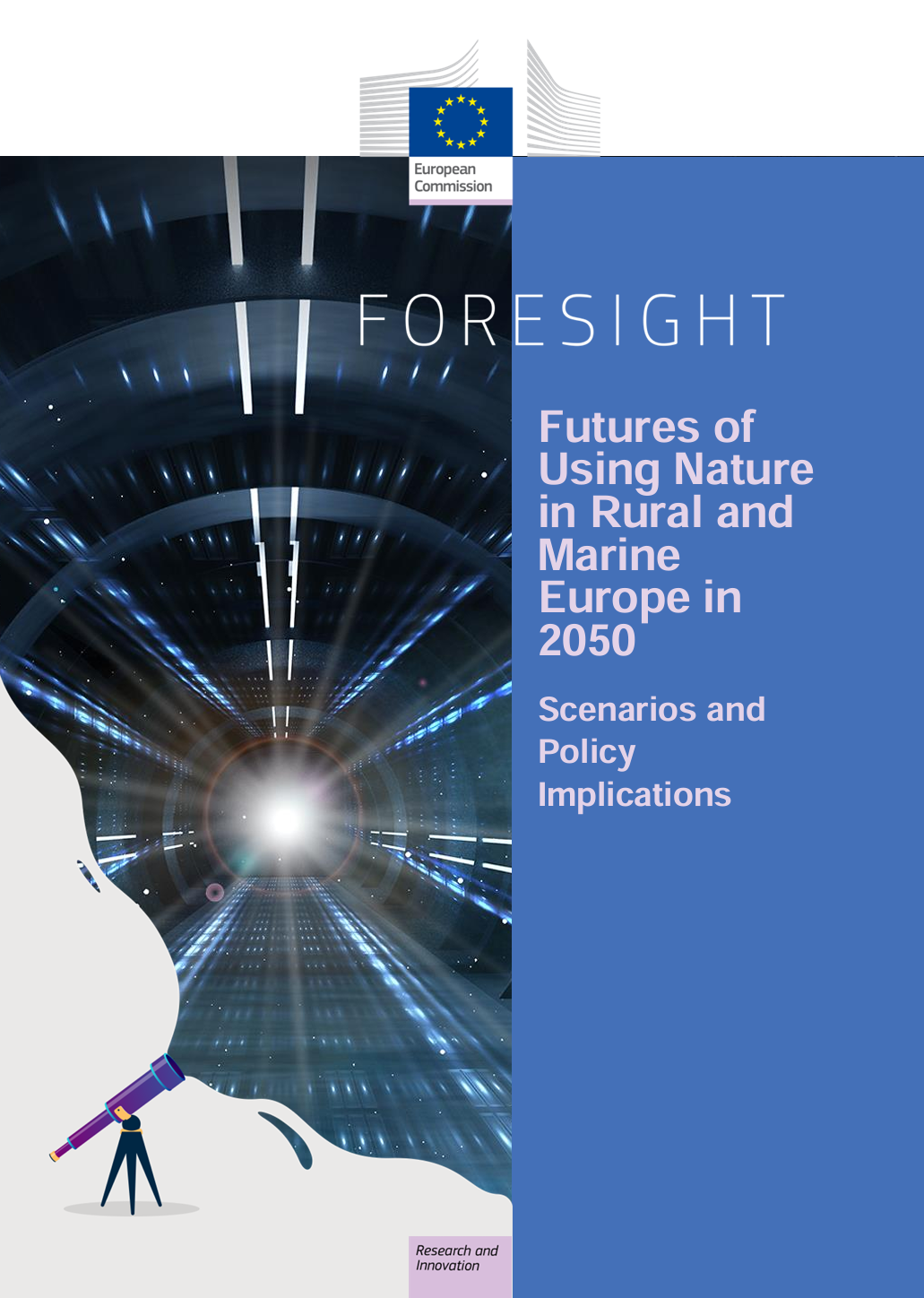
The project was one of eight Deep Dive Foresight Studies in the project ‘European R&I Foresight and Public Engagement for Horizon Europe’. The expert team identified factors of change and organised two scenarios and one policy implications workshops, also engaging experts from academia, business and public administration around Europe. The process was also supported by discussions in the Horizon Europe Foresight Network.
The foresight project developed four scenarios of Europe’s rural and marine futures by 2050:
- Scenario A – European Civic Ecovillages: Local communities pursue self-sufficiency and cooperative economies, restoring ecosystems on land and sea but focusing mainly on regional crises.
- Scenario B – Sustainable High-tech Europe: European businesses achieve global leadership in regenerative high-tech solutions, yet face barriers to scaling up and achieving systemic biodiversity gains.
- Scenario C – United States of Europe: A centrally planned model balances intensive land and sea use with large conservation zones, creating positive impacts on biodiversity but limiting decentralization.
- Scenario D – European Permacrisis: A fragmented, post-growth Europe struggles with political division, weak innovation, and ineffective biodiversity protection.
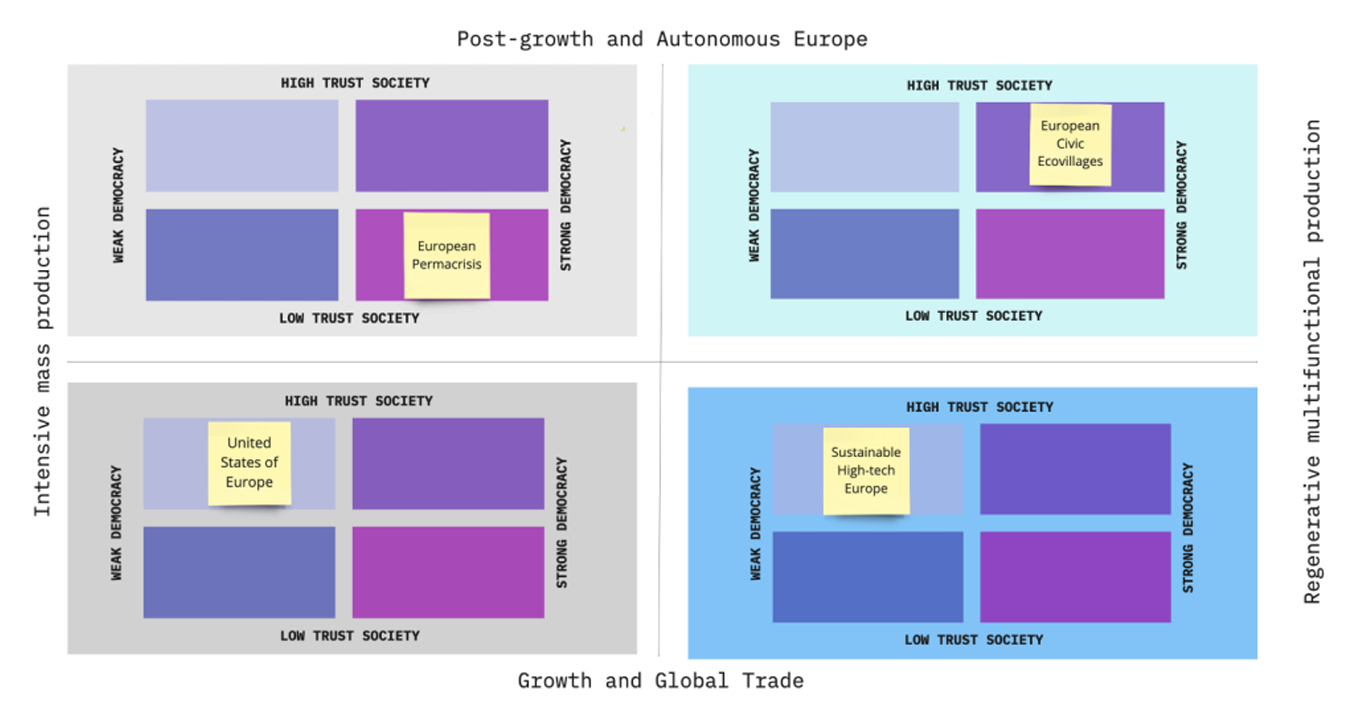
Policy implications included:
- Tackling risks of fragmented land use that weaken ecosystems and reduce resilience.
- Advancing integrated spatial planning of urban, rural, and marine areas, including extended user rights and new ownership models.
- Balancing sustainability with affordability and food security in agriculture and aquaculture.
- Developing both local and global solutions to climate and biodiversity crises, ensuring scalability and coherence.
The scenarios underlined that no single solution can fully resolve global climate and biodiversity challenges. Instead, Europe must foster balanced, multi-level approaches that combine innovation, governance, and inclusive societal engagement to ensure resilience and sustainability.
Additional information
Totti Könnölä, Martha Bakker, Francois Simard, David Shaw, Philine Warnke. “Futures of Using Nature in Rural and Marine Europe: Scenarios and Policy Implications ”. Publications Office of the European Union, 2024.
